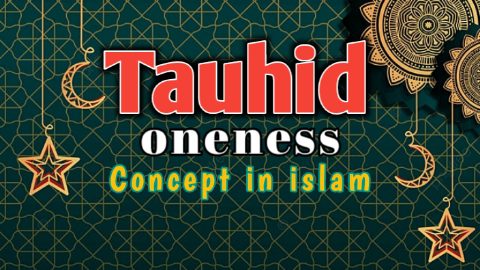Introduction

Set out on a travel to investigate the wealthy embroidered artwork of Islam convictions and practices, encompassing the basic fundamentals and social subtleties of one of the world’s major religions. From the columns of confidence to the complexities of every day customs, this direct offers an quick see into the assorted features of Islam.
Understanding Islam Convictions and Practices
Islam, a religion established on monotheistic standards, emphasizes the accommodation to the will of Allah (God). Central to Islamic convictions are the Five Columns of Islam, which serve as the establishment of Muslim confidence and practice.
The Shahada: Announcement of Faith

The Shahada, the Islamic proclamation of confidence, typifies the center conviction within the unity of Allah and the prophethood of Muhammad(sal lal la ho alai he wasalam).
Salah: Custom Prayer
Salah, the custom supplication performed five times a day, serves as a coordinate association between the person and Allah, cultivating otherworldly teach and mindfulness.
Zakat: Almsgiving
Zakat, the act of giving charity to those in require, underscores the significance of charity and kindness inside the Islamic community.
Sawm: Fasting amid Ramadan
Sawm, the recognition of fasting amid the sacred month of Ramadan, advances self-discipline, sympathy, and otherworldly decontamination among Muslims worldwide.
Hajj: Journey to Mecca
Hajj, the journey to the heavenly city of Mecca, speaks to a significant otherworldly travel and communal commitment for Muslims who are physically and monetarily capable.
Islamic Celebrations and Celebrations
From Eid al-Fitr, checking the conclusion of Ramadan, to Eid al-Adha, commemorating the readiness of Ibrahim (Abraham) to give up his child as an act of compliance to Allah, Islamic celebrations celebrate minutes of otherworldly noteworthiness and unity.
The Quran: Divine Revelation
The Quran, respected as the word of Allah as uncovered to the Prophet Muhammad(sal lal la ho alai he wasalam), serves as the extreme direct for Muslims, advertising otherworldly direction, ethical lessons, and legitimate principles.
The Sunnah: Prophetic Tradition
The Sunnah includes the lessons, activities, and platitudes of the Prophet Muhammad(sal lal la ho alai he wasalam), giving a viable illustration for Muslims to imitate in their day by day lives.
Islamic Statute (Fiqh)
Islamic law, or Fiqh, translates the Quran and Sunnah to infer lawful decisions and rules overseeing different perspectives of person and communal life.
Gender Roles and Family Life
Islam emphasizes the significance of family cohesion, with characterized parts and obligations for men and ladies inside the household, based on standards of shared regard and support.
Islamic Morals and Morality
Central to Islamic morals are standards of genuineness, astuteness, equity, and sympathy, directing Muslims in their intelligent with others and forming their ethical conduct.
Islamic Craftsmanship and Architecture
Islamic craftsmanship and design reflect the wealthy social legacy of the Muslim world, characterized by perplexing geometric designs, arabesques, and calligraphy, frequently interwoven with otherworldly symbolism.
Islamic Commitments to Science and Knowledge
All through history, Islamic researchers have made noteworthy commitments to different areas, counting arithmetic, space science, medication, and reasoning, clearing out a enduring bequest of mental request and innovation.
Islamic Back and Economics
Islamic fund works on standards of moral and impartial riches dissemination, denying intrigued (riba) and advancing risk-sharing and social welfare through concepts such as Zakat and Sharia-compliant investment.
Islamophobia and Challenges
In spite of its wealthy legacy and assorted worldwide community, Islam faces challenges such as separation, stereotyping, and political pressures, requiring endeavors to advance understanding, discourse, and social cohesion.
FAQs (Frequently Inquired Questions)
- What are the center convictions of Islam?
Islam’s center convictions rotate around the conviction within the unity of Allah (Tawhid), prophethood, blessed messengers, divine sacred writings, and the Day of Judgment.
- How do Muslims hone their faith?
Muslims hone their confidence through acts of adore, counting supplication, fasting, charity, journey, and adherence to ethical and moral principles.
- Why is Ramadan critical in Islam?
Ramadan holds centrality as the month in which the Quran was uncovered to the Prophet Muhammad(sal lal la ho alai he wasalam) and is watched through fasting, supplication, reflection, and acts of charity.
- What is the importance of the Hajj pilgrimage?
The Hajj journey is critical as one of the Five Columns of Islam, symbolizing solidarity, correspondence, and otherworldly reestablishment among Muslims worldwide.
- How does Islamic law (Sharia) impact day by day life?
Islamic law, or Sharia, gives direction on various angles of way of, life individual conduct, family things, back, and administration, based on standards determined from the Quran and Sunnah.
- How does Islam advance social equity and equality?
Islam advances social equity and balance through standards of charity, kindness, reasonableness, and the evenhanded conveyance of riches and resources.
Conclusion
In substance, islam convictions practices and hones include a wealthy embroidered artwork of confidence, culture, and convention, forming the lives of millions around the globe. By delving into the basic rituals, and values of Islam, one gains a deeper understanding of its profound impact on individuals, communities, and societies worldwide.